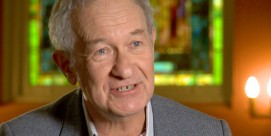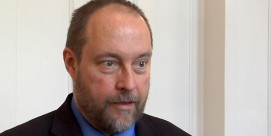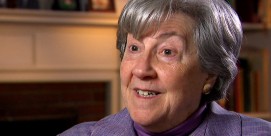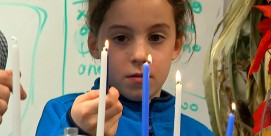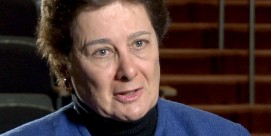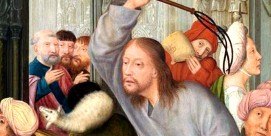Faith: Jewish
“We are a very noisy, verbalizing, speechifying language animal, and I love that. But we walk around as so many millions of talking books.” More
“In the last couple of generations, we’ve seen a great increase in Jewish learning amongst women. Women have said, ‘Well, we are also obliged in the commandment. We can take a leading role.'” More
“God made us to be in contact with other human beings. And when we take that human contact away, it exacerbates whatever problems that may have been there before. So rather than rehabilitating people, it actually makes them worse,” says Galen Carey of the National Association of Evangelicals. More
This New Year celebration of trees, observed on the 15th day of the Hebrew month Shevat, has grown in popularity because of its connection to the environment. We spoke last year with Eldridge Street Synagogue educator Mattie Ettenheim at a Tu B’Shevat observance. More
“Some people call it laughter through tears. I would suggest you could call it laughter through fears,” says Harvard University Yiddish literature professor Ruth Wisse. More
According to many in the Jewish community, Hanukkah and Thanksgiving have much more in common this year than just a calendar date. They both celebrate gratitude, community, and religious tolerance. More
“If Thanksgivukkah can be a spark that allows us to bring a little bit of the Hanukkah light into a Jewish person’s Thanksgiving table, then that’s a gift.” More
“You had people watching synagogues burn. You had people looting business that had been plundered. You had people joining in on the violence.” More
Kristallnacht, says this historian who directs the US Holocaust Memorial Museum’s Committee on Ethics, Religion, and the Holocaust, was a pogrom, an escalation of violence against the Jewish population at a time when America was heavily isolationist: “There were a variety of factors that made people turn away from actively helping the Jews just as they really needed the help the most.” More
A new book by religion scholar Reza Aslan portrays Jesus as a Jewish revolutionary and just one of many in a line of “failed messiahs.” “It was a phenomenon that was quite widespread and that led to a number of rebellions and insurgencies throughout the first century,” says Aslan, “and the argument of the book is that those zealot ideals and principles are at the heart of Jesus’ teachings and actions.” More

